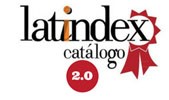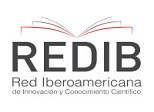Knowledge Management: A Challenge of Current Elementary School
DOI:
https://doi.org/10.69890/hallazgos21.v5i3.474Keywords:
learning; function; concept.Abstract
The article refers to one of the theoretical results of the research project "Didactic contextualization in the teaching-learning process of the Physical-Chemical-Mathematical Sciences". The work contains considerations on the diagnosis of the state of the aforementioned problem in primary schools taken as a sample of the municipality of Las Tunas, Cuba, and the argumentation of the theoretical limitations related to the development of functional thinking from Mathematics classes from the instruments applied to verify this problem. As a response to the difficulties revealed in the diagnosis, didactic suggestions are proposed for the implicit treatment of the concept of function based on the correspondences and relationships that can be found in the sixth grade content, mainly in the movements of the plane and the problems of proportionality. The correspondence and functions guideline is taken into account to form this concept propaedeutically in primary school students, specifically in sixth grade. It is concluded that primary school teachers must take into account in their classes the possibilities of developing the functional thinking in their students that allows them to develop skills and knowledge so that in ninth grade they can define the concept of function explicitly.
References
Ballester, S. (1990). Metodología de la Enseñanza de la Matemática. Tomo 1. La Habana: Editorial Pueblo y Educación.
Ballester, S. (2003). El transcurso de la línea directriz: planteo, formulación y resolución de problemas. El transcurso de las líneas directrices en los programas de Matemática y la planificación de la enseñanza. La Habana: Ed. Pueblo y Educación.
Colectivo de autores. (1990). Matemática 5 grado. La Habana: Editorial Pueblo y Educación.
Colectivo de autores. (1990). Matemática 6 grado. La Habana: Editorial Pueblo y Educación.
Colectivo de autores. (1991). Orientaciones Metodológicas de 6 grado. La Habana: Editorial Pueblo y Educación.
Colectivo de autores. (2002). El transcurso de las líneas directrices en los programas de Matemática y la planificación de la enseñanza. La Habana: Editorial Pueblo y Educación.
Colectivo de autores. (2005). Tratamiento metodológico de los conceptos matemáticos y sus definiciones. Revista Opuntia Brava, Las Tunas.
Colectivo de autores. (2014). El Proceso de enseñanza aprendizaje de la Matemática. Documentos Metodológicos. La Habana: Editorial Pueblo y Educación.
Colectivo de autores. (2015). Sugerencias de Trabajo Metodológico para el fortalecimiento de la Matemática en la escuela primaria. La Habana: Editorial Pueblo y Educación.
Díaz. C, Alvarado, A. (2014). Matemática para la Licenciatura en Educación Primaria. La Habana: Editorial Pueblo y Educación.
Junk, W. (1991). Conferencias sobre Metodología de la Enseñanza de la Matemática 2. La Habana: Editorial Pueblo y Educación.
Published
How to Cite
Issue
Section
License
Los artículos enviados a la Revista Científica Hallazgos21 deberán ser totalmente originales e inéditos.
Los autores son los responsables de los textos y las imágenes incluidas en los artículos y no necesariamente reflejan el pensamiento de la editorial o de la Pontificia Universidad Católica del Ecuador, Sede Esmeraldas (PUCESE).
Los autores disponen cederle a la Revista Científica Hallazgos21 todos los derechos inherentes para la edición, publicación y distribución o divulgación del mismo.
Se autoriza a las revistas firmantes de los acuerdos de Encuentros de Revistas Latinoamericanas para reproducir en parte o totalmente los artículos con la sola mención de la fuente claramente señalada.







